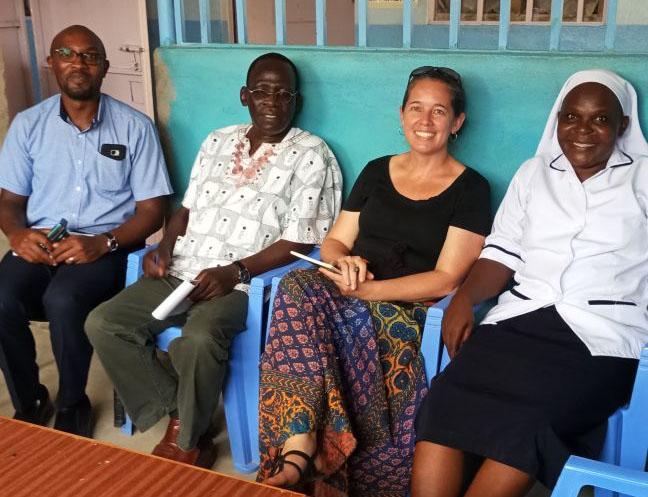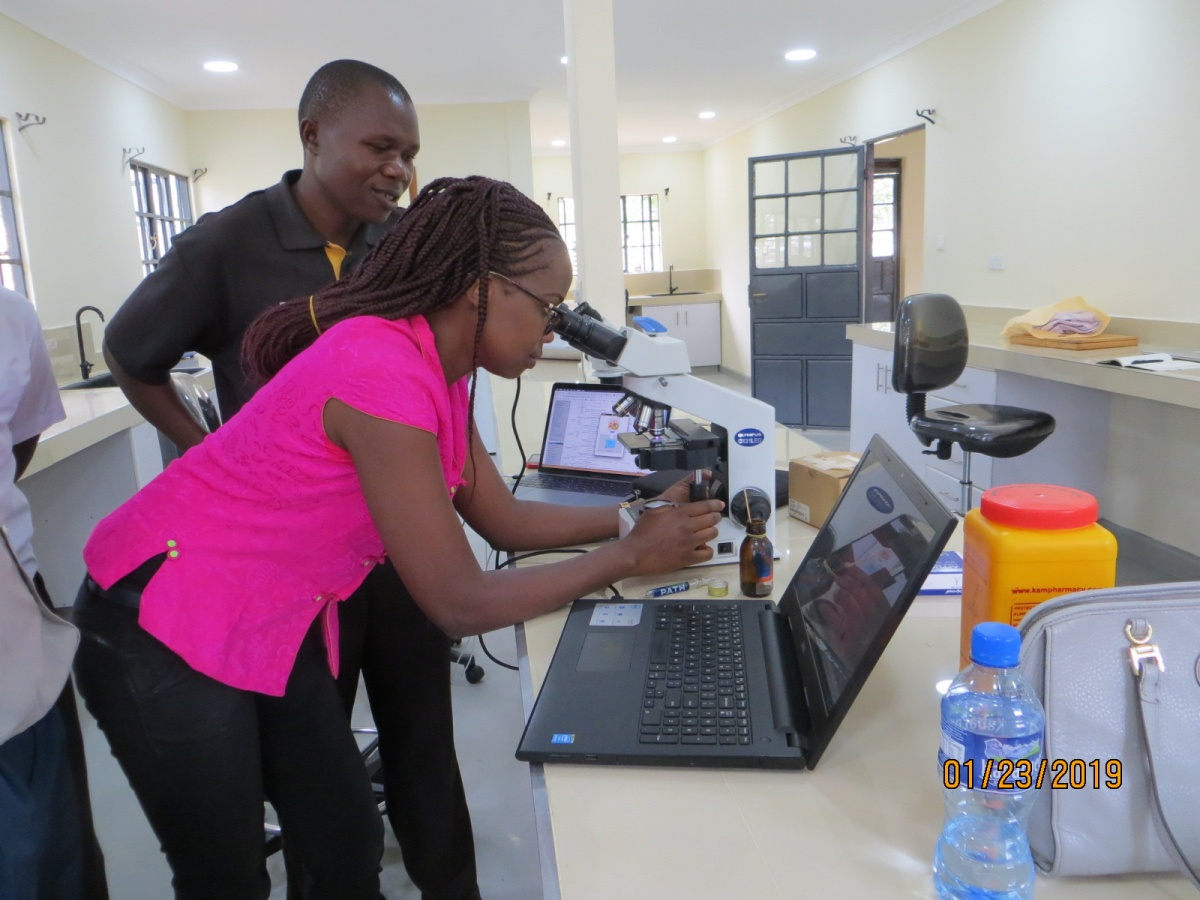
Wendy Prudhomme - O’Meara, PhD, associate professor of medicine (Infectious Diseases) and global health, has been living and working in Kenya for 13 years. She is a visiting professor at Moi University in Eldoret, Kenya. An engineer by training, receiving her Ph.D. from Massachusetts Institute of Technology, she has been investigating malaria and the unwarranted use of antimalarial medicine.
Earlier this year, in partnership with Moi University, Webuye County Hospital, and Duke University, Dr. Prudhomme - O’Meara helped establish the Partnership for Education and Academic Research Laboratory (PEARL) to teach technicians in rural facilities more microscope skills.
This new laboratory is teaching with one microscope, valued at $10,000.
In Durham, the Duke Department of Medicine holds more than 100 microscopes in its inventory, and those are microscopes that are accounted for with a value of more than $5,000. These microscopes at Duke cost from $5,000 to more than $200,000 in value.
In most rural Kenyan facilities, the microscope is the only piece of equipment available and is primarily used for diagnosing malaria. At PEARL, technicians will add new skills to broaden the range of pathogens and diagnostic information that they can provide to improve care in very basic settings.
This new lab, housed in two 40-foot shipping containers, provides the opportunity for technicians to learn these necessary skills.

Eric Nalianya and Tabitha Chepkwony testing a refurbished microscope at PEARL Lab.
With partners at Moi University, Prudhomme-O’Meara has conducted several trials to improve the use of malaria diagnostic tools before treatment with antimalarials. In one such trial in rural facilities, she noticed how ubiquitous but under-utilized the microscopes were, but also how competent the technicians were if they received consistent feedback and mentorship.
Besides diagnosis and rational antimalarial use, her research is looking at the cause of malaria transmission; whether it is human circulation within a population or persistence of parasites in human populations. This work has led her to semi-nomadic pastoralist communities undergoing dramatic demographic transitions where she is trying to understand whether malaria is driven by human importation of parasites or newly established endemic transmission. She has looked at settlement patterns, demographic changes – trying to understand what has changed.
Although Kenya is home, Prudhomme - O’Meara wants Duke faculty to know how much Duke is doing in Kenya, not just with her team but in many other areas such as cardiology, psychology, social entrepreneurship, and more. Duke continues to have a large footprint there, and Duke Global Health’s emphasis on partnership building has set it apart from other universities.
Prudhomme - O’Meara plans to be in Kenya for some time but ultimately her goal is to train individuals into leadership roles and the next generation of investigators. She says the perspective you can have to committing to a place for the long-term is really unique.
Read more about Dr. Prudhomme - O’Meara’s lab and work being done in Kenya.
See a summary of the main areas Dr. Prudhomme - O’Meara is researching.
The Moi-Webuye PEARL on the hospital grounds at Webuye County Hospital.